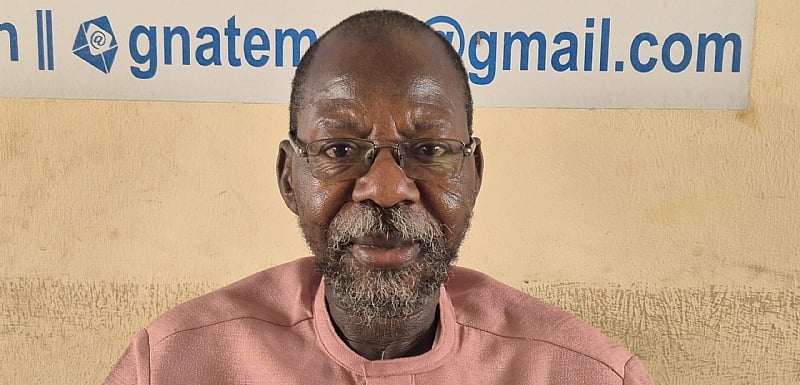Mr. Camillus Maalneriba-Tia Sakzeesi, a diabetic amputee, has issued a fervent plea to the Ghana Food and Drugs Authority (FDA) to take decisive action against the proliferation of unauthorized individuals peddling unproven cures for diabetes and other chronic ailments. His personal experience underscores the devastating consequences of falling prey to these deceptive practices. Having spent approximately GHS10,000 on such dubious remedies after his initial diagnosis, Mr. Sakzeesi lost his right leg to the disease. He emphasizes the vulnerability of newly diagnosed patients, who are often bombarded with alluring promises on social media platforms, particularly Facebook, by individuals exploiting their desperate hope for a cure. The allure of these unverified treatments often overrides caution, leading patients down a path of financial exploitation and potential health risks.
Mr. Sakzeesi highlights the deceptive tactics employed by these unauthorized drug sellers, who often assure patients of the absence of side effects despite the potential for serious harm to vital organs, including the kidneys. He characterizes their operations as a “criminal syndicate,” describing a manipulative practice where patients are enticed to “spin a wheel” to determine a supposed discount on the purportedly curative medication. This gamified approach further preys on the vulnerability and desperation of those seeking relief from their debilitating condition. He expresses grave concern on behalf of the diabetic community in Ghana, urging the FDA to leverage the readily available contact information these sellers often display on social media to track and shut down their illicit operations.
Beyond the dangers posed by these unregulated remedies, Mr. Sakzeesi also addresses the escalating costs of legitimate diabetes medications, which pose a significant financial burden on patients. He notes a steep increase in the price of essential supplies, citing his personal monthly expenditure of GHS250 on prescribed medication and the quadrupling of the cost of glucose testing strips from GHS50 to between GHS250 and GHS300 within a mere four years. This sharp rise in prices makes effective disease management increasingly challenging, particularly for those with limited financial resources. He paints a stark picture of the financial strain faced by chronic disease patients struggling to afford the necessary treatments to maintain their health and well-being.
Mr. Sakzeesi’s appeal extends beyond the FDA, reaching out to the government with a plea for intervention in the form of tax relief on essential medications for chronic diseases. He argues that reducing the financial burden on patients would enhance their ability to manage their conditions effectively, ultimately contributing to improved health outcomes and increased life expectancy. His call for government action underscores the importance of accessible and affordable healthcare for all citizens, regardless of their health status. He advocates for policies that prioritize the well-being of individuals battling chronic illnesses, recognizing the significant impact of financial constraints on their ability to access necessary treatments and maintain a reasonable quality of life.
Mr. Sakzeesi’s story serves as a cautionary tale, highlighting the vulnerability of individuals seeking solutions to debilitating health conditions. His experience underscores the importance of seeking medical advice and treatment from qualified healthcare professionals and avoiding the temptation of quick fixes offered by unregulated sources. He advocates for greater public awareness about the dangers of these fraudulent practices and calls for increased regulatory oversight to protect vulnerable individuals from exploitation. His personal loss and financial burden serve as a sobering reminder of the consequences of falling prey to unsubstantiated claims and the urgent need for effective measures to combat the proliferation of these harmful practices.
Furthermore, Mr. Sakzeesi’s appeal brings into sharp focus the broader issue of healthcare affordability and accessibility, particularly for individuals managing chronic conditions. His call for government intervention in reducing the cost of essential medications reflects a growing concern about the financial strain placed on patients struggling to afford the ongoing treatment required to manage their conditions. He champions the right to affordable healthcare for all, advocating for policies that prioritize the well-being of individuals battling chronic illnesses and ensure their access to the necessary resources for effective disease management. His story serves as a powerful reminder of the critical role of accessible and affordable healthcare in promoting public health and ensuring a decent quality of life for all citizens.


